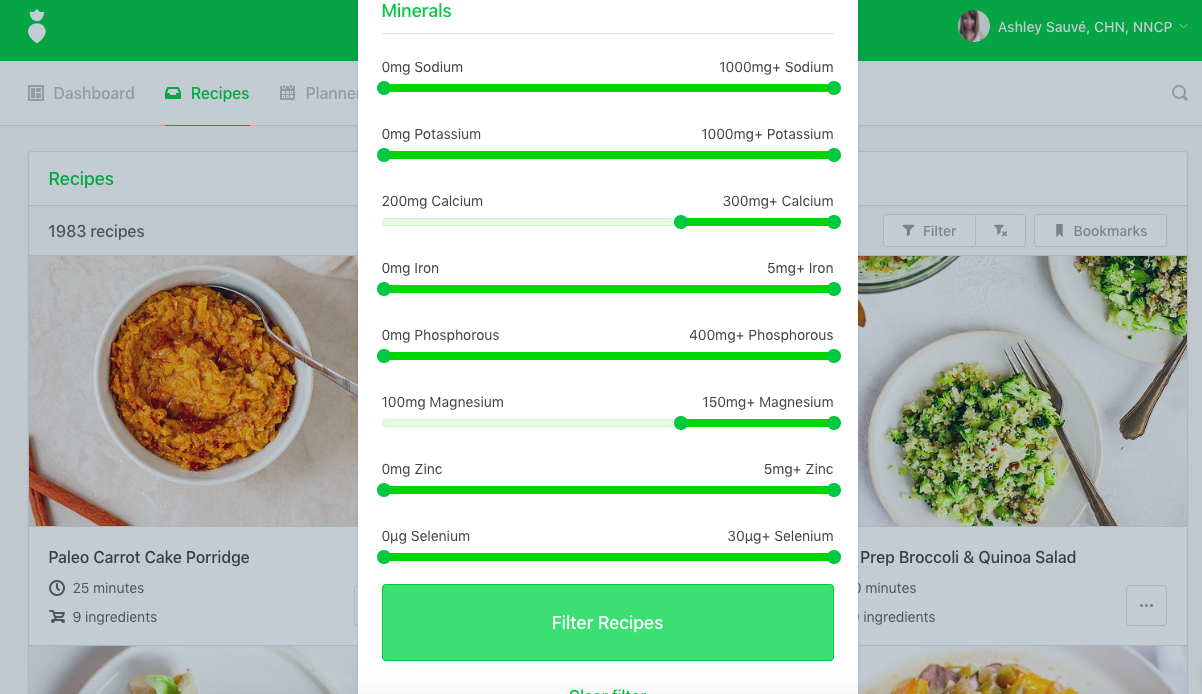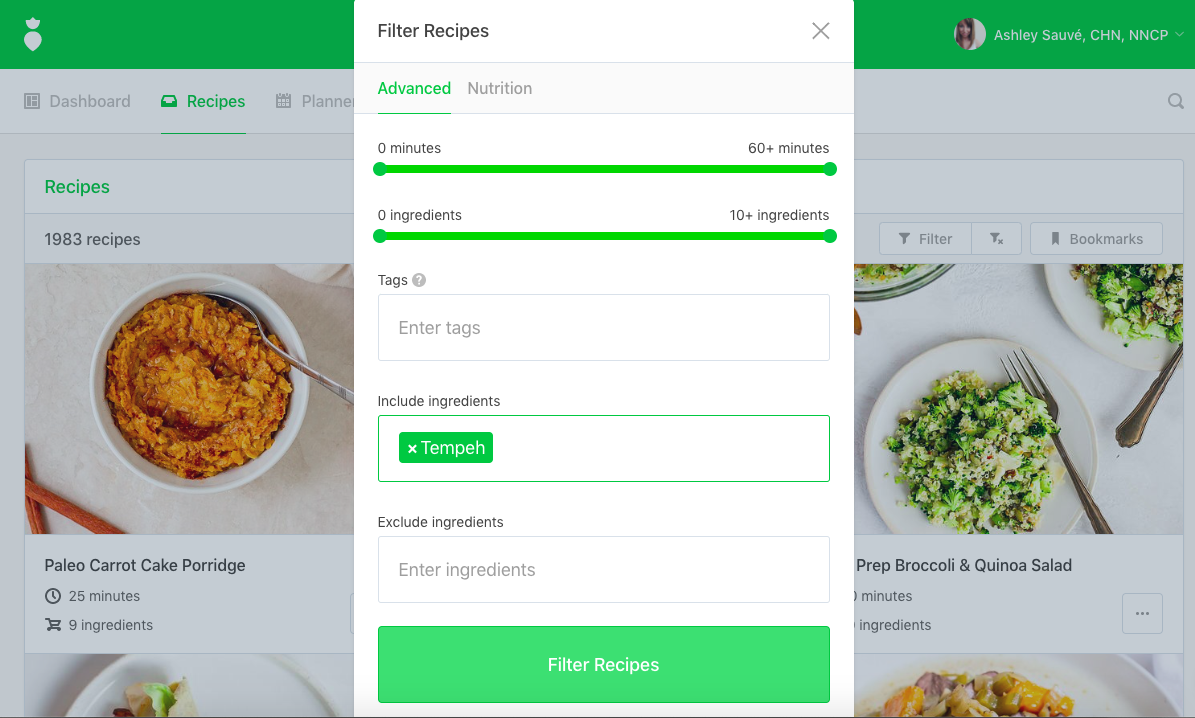Menopause is a very common health concern for middle-aged women. Menopause symptoms include bone health, blood sugar imbalances, and hot flashes. Needless to say, nutrition can play a major role in helping to manage these symptoms!
That Clean Life now offers a Menopause Support Program and Plant-Based Menopause Support Program. These programs include a 7-day meal plan, itemized grocery list, recipes, and a prep guide. They can be customized based on your client’s energy needs and preferences.
Our Menopause Support Programs were designed with key nutrients for menopause in mind. Here are the nutrients and foods we included on our menopause nutrition plans based on scientific evidence.
Calcium & Magnesium
During menopause, the loss of estrogen increases the risk of osteoporosis(1) which is why bone health becomes a big concern. Luckily, minerals like calcium and magnesium can help prevent bone loss during this phase of life.
Calcium and magnesium are really a dynamic duo for bone health. Calcium builds healthy bones(2) and magnesium ensures that calcium ends up in the right place.(3)
You can easily search for recipes high in calcium and magnesium (amongst other vitamins and minerals) using That Clean Life:

Our Menopause Support Programs are high in both calcium and magnesium from whole food sources.
Protein
As we age, our protein needs increase.(4) Women transitioning into menopause often experience sudden, rapid weight gain and have difficulty controlling their blood sugar, even without making changes to their diet.
Protein has been shown to play an important role in healthy weight maintenance(5) and can help improve blood sugar control.(6) This is why our Menopause Support Program contains an average of 25% calories from protein, and the Plant-Based Menopause Support Program contains an average of 20% of calories from protein.

A "high protein diet" is typically considered one that has 20% or more calories from protein. Some clients may feel better with even more. Work closely with your clients to determine the amount of protein their body responds best to. Once you know the amount your client thrives on, you can add more or scale back, depending on their needs.
Phytoestrogens
One of the most common complaints from menopausal clients is hot flashes. Some research has found that phytoestrogens may help reduce hot flashes.(6)
Our Menopause Support Programs contain many recipes that include phytoestrogen-containing ingredients including:
- Soy (edamame, tempeh, tofu)
- Chickpeas
- Lentils
- Broccoli
- Carrots
- Flax
- Sesame
- Oats
Using That Clean Life, you can easily search for recipes that contain specific foods you’d like your client to eat and use them to build a meal plan or create a recipe book:

Healthy Fats
Fat is an important factor for blood sugar control and satiety, which are important to clients going through menopause. In addition, good quality fats are associated with a lower risk of both heart disease and breast cancer(7), both of which affect the menopausal population.
Some healthy fat sources to consider adding to your menopause nutrition plans include:
- Avocado
- Walnuts
- Extra virgin olive oil
- Salmon
- Chia and flax seeds
- Tahini
- Sunflower and sesame seeds
Want to learn more about Meal Planning for Menopausal Clients? Join us for a free training on Tuesday, October 27th. We’ll be walking through our Menopause Support Programs and sharing ideas for growing your business within this niche. Sign up here.

